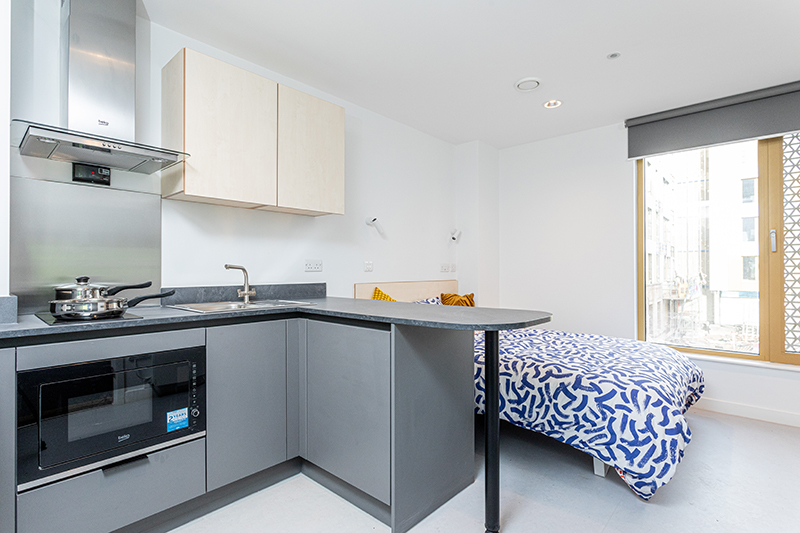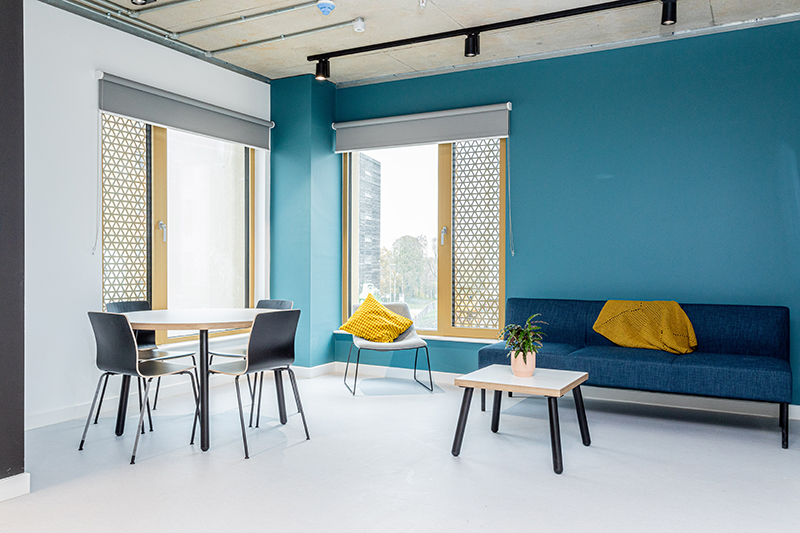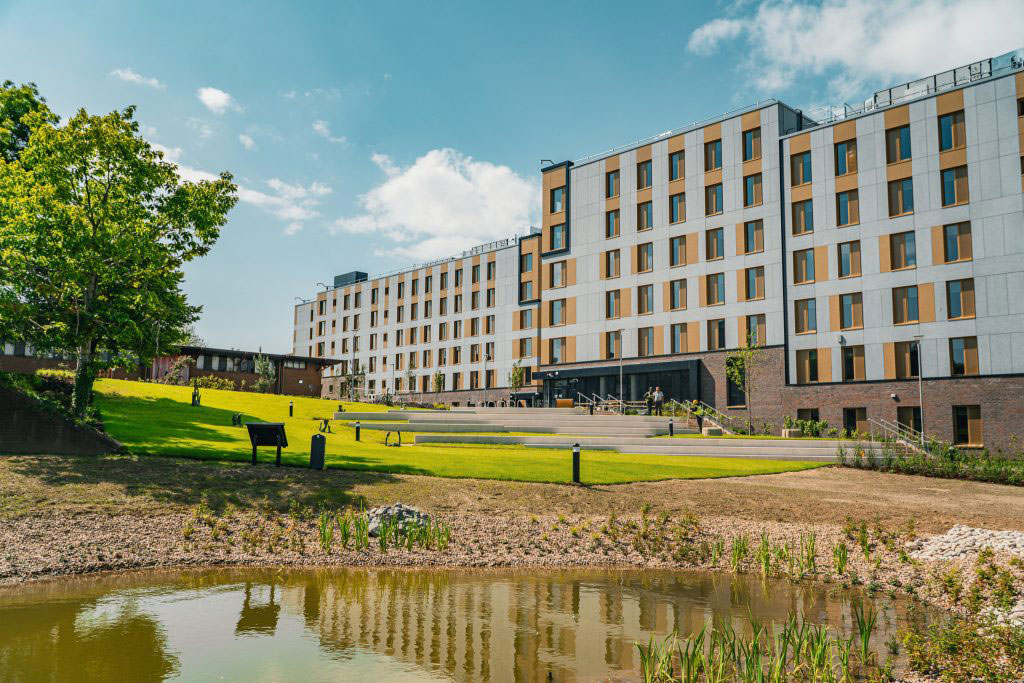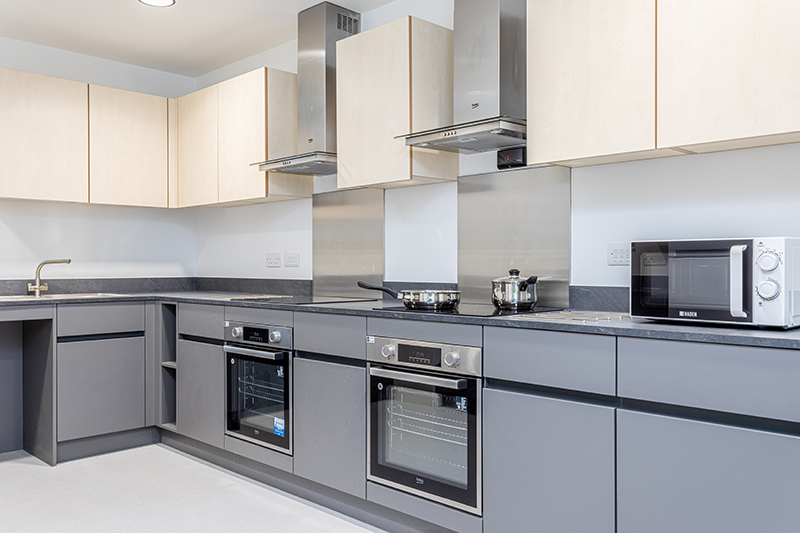
It is far more cost-effective to save energy than generate it!
With 35% of global energy consumption coming from the building sector, its energy use in the construction, cooling and heating of buildings is the largest contributor to carbon emissions. Construction must go through a radical change to meet Net Zero targets to mitigate the climate crisis.
The tools needed to deliver net zero exist today! The University of the West of England (UWE) has first-hand experience at Purdown View, its newest student accommodation development, combining Passivhaus construction with intelligent heating control.
Passivhaus certified
Purdown View is one of the largest Passivhaus certified developments of its kind in the world, it is also a first for the university sector in the UK. Built in the heart of the UWE Frenchay Campus, this project is key to UWE achieving its 2030 sustainability target.
Constructed in three blocks of up to six storeys, the development comprises studio flats and clusters of four, six and eight bedrooms with en-suite or shared pod shower rooms. In total 900 beds.
The buildings will yield a 54% reduction in running costs and carbon emissions compared with a typical ‘good practice’ building.
So, why does a Passivhaus building require heating control. In a nutshell – overheating. A serious issue often over-looked. Central control of individual heat sources, and monitoring of every room’s temperature, ensures heat input cannot be applied when deemed unnecessary by the control criteria.
Individual room control
Irus, from Prefect Controls, is a centrally controlled Building energy Management System (BeMS). It currently manages space and water heating in 70,000+ rooms at more than 130 sites across the UK.
It works on the basis that heat input is only activated to maintain the pre-determined temperature, which, in the case of Passivhaus projects is seldom.

Individual room controllers send data to and from the portal using the existing electrical wiring, a technique known as Mains Borne Signalling (MBS). This is cost effective and negates the expense of installing data cabling.
Occupants can increase the temperature using Boost mode, but the profiles set via the internet portal, cut input after the time limit elapses. This ensures the thermostat cannot be turned to ‘max’ and left there all year.
PIR movement sensors and window open technology means energy is cut when rooms are empty or windows open. The system is always striving to avoid heaters switching on. Ensuring the Passivhaus criteria of not exceeding 25°C for more than 10% of the year is met. Profiles can be changed on a room-by-room basis remotely, to ensure individual occupants’ comfort. At the end of term, the ‘Reset-all’ feature brings every room back to the same profile – ensuring compliance with the site’s heating policy – all this without staff ever crossing a threshold.
Kitchen safety
UWE also specified HobSensus across all the kitchens at Purdown View, Prefect’s hob safety product that integrates with Irus. The device prevents hobs being left on if the person preparing food is distracted or leaves the kitchen unattended. It remotely keeps managers up to date with kitchen activity and triggering’s.
Award winning
In October 2023, HobSensus won the ‘Safety Innovation Award’ presented by Electrical Safety First, the campaigning organisation recognised by government as the leading authority on electrical safety. A month later the previous Irus/UWE project also won ‘Education Sector Project of the Year’ at the Energy Saving Awards. While this year Purdown View’s sustainability credentials were recognised by winning the ‘Innovation in Student Housing’ prize at the CUBO Awards.
Photo credits: Purdown View_UWE Bristol_©Tom Sparey

